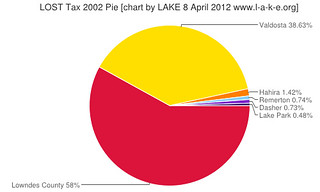As I walked in the door, a couple minutes late due to construction on the hospital parking lot, Commissioner Crawford Powell said,
John, you’re late!
They were milling about and looked like they were about to start. But no, they had started early and Chairman Paulk told me the meeting had lasted four minutes because there hadn’t been much to say. So there are no videos of this morning’s Lowndes County Commission Work Session.
I remarked that it had seemed like a fairly complicated agenda, but he didn’t think so.
I asked him about this mysterious item:
7.b. Request from LCSO — GOHS Grant #2013-TEN-0077-00 & #2013-GA-0040-00
He said it is about some equipment to automate Sheriff’s deputies checking license plates against databases. I told him I had assumed they had already been doing that. He said they could do it by hand, but they’d get really tired trying to do as many as this device could do.
Presumably it’s similar to the Automatic License Plate Reader (ALPR) described by Doug Nurse in the AJC 20 March 2009, New police license plate scanner eyes criminals.
Alpharetta Police Officer John Allen said that a few weeks after the system became went online last August, he was driving home after a shift when the system alerted him that he had passed a stolen car. He wheeled around, and after a chase, arrested the thief.
“I never even saw the tag myself,” Allen said. “I would have just kept going. It catches things I would be unable to see.”
While I don’t know that I’m in favor of ALPR, it’s common enough elsewhere that I was actually surprised the famously drug-interdicting LCSO wasn’t already using it.
To the Chairman’s credit, as soon as I asked about the LOST meeting with the mayors, he said it was at 9:30 in the room next door, and the public was invited. I took videos of that LOST meeting, and they will appear soon.
-jsq








